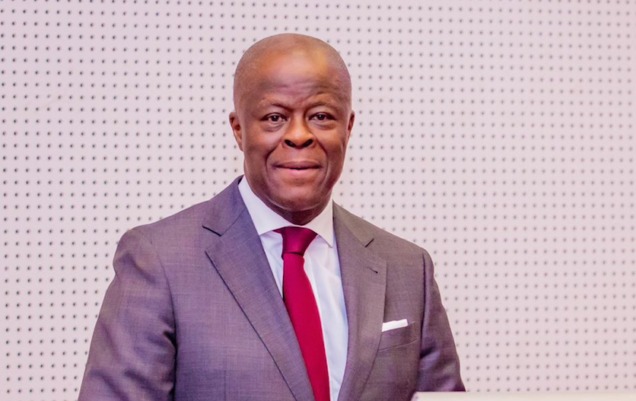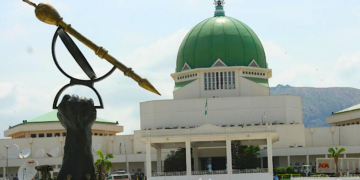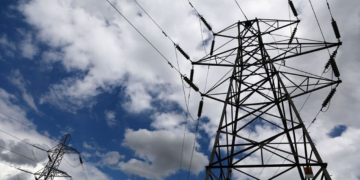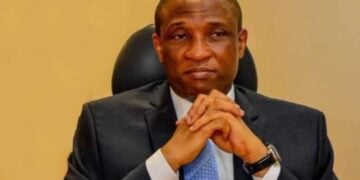Nigeria’s minister of Finance and coordinating minister of the economy, Mr Wale Edun, has assured that the President Bola Ahmed Tinubu will keep the autonomy of the Central Bank of Nigeria (CBN) even as he said the federal government will not go beyond the statutory limit of borrowing from the apex bank through Ways and Means.
This is coming as the World Bank has appointed him the chairman of the African Governors’ Forum.
Edun’s appointment disclosure was contained in a statement issued by the Federal Ministry of Finance and can be seen on its official X (formerly Twitter) account.
According to a statement by the ministry, Edun’s appointment marks the first time Nigeria has assumed the role of Chairman in 60 years.
It also noted that the appointment presents a unique opportunity for Nigeria and the implementation of President Tinubu’s Renewed Hope Agenda.
The statement reads, “The appointment presents a unique opportunity for Nigeria and implementation of President Tinubu’s Renewed Hope Agenda.
“Nigeria’s Minister @FinMinNigeria & Coordinating Minister of the Economy
The African Governors’ Forum is a platform for African finance ministers and central bank governors to engage with the World Bank on issues of mutual interest.
Meanwhile, speaking at a press conference concluding the 2023 Annual Meetings of the International Monetary Fund and the World Bank which were held in Marrakech, Morocco, Edun noted that the president is a man of rule of law and would not go beyond the limits of the law.
According to him, Ahmed Tinubu while campaigning had committed to not go beyond the statutory limits. “One of his priorities is rule of law, sticking to agreements, sticking to law. And so, his commitment is to come within the limit for Ways and Means which essentially means overdraft borrowing from the central bank.
“However, having made that commitment and given that direction of travel, I think the idea and commitment is to come within whatever is the statutory limit as soon as possible. But definitely, we have begun that journey back from the situation of ballooning or seemingly out of control borrowing from the central bank.”
Commenting on the talks with the World Bank on $1.5 billion budget support, he confirmed that there are talks saying “the World Bank is the number one multilateral development bank helping developing countries or funding developing countries, projects and programmes, and sectors. It has free money through either International Development Association (IDA). It is for the poorer countries and right now I think we qualify as one of the countries that can borrow in the normal window of World Bank funding but also some concessionary IDA funding and that means that effectively the interest rate will be zero.
“So, therefore, there is no stigma attached to qualifying for World Bank funding to help finance development. In this particular case, it has long been in the pipeline, and we are hoping that funding will come through soon. A lot of hard work is being done. There is a Federal Executive Council meeting on Monday, that should be able to discuss this, as well as other initiatives for financing on reasonable terms. We have talked about the high costs of money, the World Bank money is the cheapest.”
On debt restructuring, he said the government is looking out “for opportunities to maybe lengthen debt, improve the condition under which that debt is borrowed when you do so, but we must remember that the world we are in now is a world of high interest rates, that means that, debt is becoming more and more unaffordable. So, if you have cheap financing, you better hold on to it as long as you can, as long as you are comfortably servicing it. In places where you can’t, you need to find the money to pay it down to make sure it is not a burden.
“The narrative is that with the bold courageous steps that Nigeria has taken, the narrative is that we are now at the forefront, almost number one on people’s list when they want to look at where to invest. That is the narratives and I am sure if you have been around through this week, you would have picked it up. There is more to be done but Nigeria is definitely on the right path, that we have taken the right decision for the economy to recover and for it to attract foreign direct investment and as well I will add domestic investment in order to recover full economic growth, job creation and at the same time achieve inclusivity of women and young people.”
Speaking on the recent reforms of the government, Edun said “these are painful reforms and Mr. President is a man of empathy who promised not to leave the vulnerable and poor behind. And as you know there is a set of interventions being rolled out which day by day should improve things.
“More food has been grown, fertilisers are being released, CNG transport is the order of the day, while the government pauses, conversion kits are on the way, there is take up of that initiative by the private sector.
“So, day by day we are moving closer to affordable and even cleaner energy simply because the price of petroleum products has been put where it really stands rather than having cheap fuel which is below the market price and below it’s value. Now you are seeing the right value and that is making the move to cleaner and finer energy.
“I will also add, one of the benefits, when we talk about the benefits coming through some of the measures taken, the fact that there has been a 30 per cent reduction in smuggling of petroleum products across the border, I think is a major achievement of that all important step to remove fuel subsidy.”
The Finance Minister noted that the Nigerian delegation at the meetings had discussed debt burdens, capital flow reversals, poverty eradication, climate change, as well as rising cost of borrowings. He stated “that at the IFMC meeting where I represented 22 Sub-Saharan Countries, I highlighted that longer interest rates have amplified debt service burdens and capital flow reversals.
“I urged for continued multilateral cooperation to tackle debt challenges which support the G20 Common Framework and the Global Sovereign Debt Roundtable. I emphasised strengthening the IMF Global Financial Safety Net to best serve the needs of the membership, especially the more vulnerable ones. This includes the successful completion of the 16th General Review of Quotas and the creation of the third Chair for Africa – to be occupied by Sub-Saharan Africa.
“At the Development Committee of the World Bank, we discussed the on-going WBG evolution agenda which is in response to the G20 Independent Panel on Capital Adequacy Framework. We encouraged the World Bank to remain focused on the twin goals of poverty eradication and shared prosperity, while enhancing its operating and financing models so it can cope with increasing trans-border and global challenges and avoid needless trade-offs.
“We emphasised the need for a robust framework that would enhance global liquidity for the purpose of settling balance of payment, fiscal crisis and reducing the cost of borrowings. We reflected on the increasing poverty level in LICs and called for a robust IDA 21 Replenishment.
“At the G20 Meeting, I commended the international community for the timely response and strong progress on the implementation of the G20 Capital Adequacy Framework and expressed Nigeria’s support for the recommendations contained in Volume 1 & 2 of the G20-Independent Expert Report.
“Finally, I commended the G20 Road Map on Crypto assets which provided a global framework on crypto assets regulation and supervision and urged that the implementation should be left with the Central Banks.
“In addition, during various plenary and bilateral meetings including World Bank, IFC, EBRD and International banks, we were encouraged that our reform efforts are being globally acknowledged and applauded as capable of putting Nigeria on the path to economic recovery.
We emphasised access to investment capital particularly from the private sector and at a large scale; as well as the need to support private sector development.





